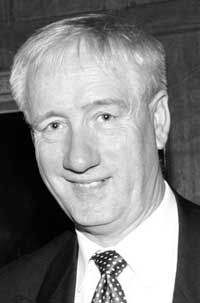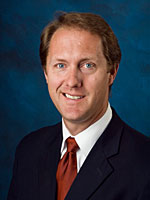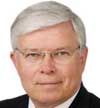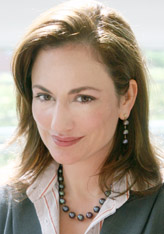The 2013 Santa Clara Journal of International Law Symposium
The Law and Politics of Foreign Investment
Friday, February 1st and Saturday, February 2nd, 2013
Williman Room, Benson Center, Santa Clara University
HOSTED BY:
Santa Clara University School of Law
Santa Clara Journal of International Law
Center for Global Law & Policy
Co-sponsored by the American Society of International Law and the Markkula Center for Applied Ethics
Keynote Speaker
Speaker Bios
Schedule
Abstracts
Papers
Keynote Speaker: Rudolf Dolzer
 Rudolf Dolzer is the Director of the Institute for International Law at the University of Bonn in Bonn, Germany. Dolzer received his J.D. from Heidelberg University and his LL.M. from Harvard, where he also acquired an additional J.D. Before joining the faculty of the University of Bonn, Dolzer was a Professor of Law at Heidelberg University and at the University of Mannheim, where he served two years as Vice Rector. He spent six years as a member of the German Parliament, and he was Director General at the Office of the Federal Chancellor. He teaches classes on International Commercial Arbitration and Foreign Investment. Professor Dolzer is the author of numerous books and articles on international investment law, including the highly acclaimed Principles of International Investment Law.
Rudolf Dolzer is the Director of the Institute for International Law at the University of Bonn in Bonn, Germany. Dolzer received his J.D. from Heidelberg University and his LL.M. from Harvard, where he also acquired an additional J.D. Before joining the faculty of the University of Bonn, Dolzer was a Professor of Law at Heidelberg University and at the University of Mannheim, where he served two years as Vice Rector. He spent six years as a member of the German Parliament, and he was Director General at the Office of the Federal Chancellor. He teaches classes on International Commercial Arbitration and Foreign Investment. Professor Dolzer is the author of numerous books and articles on international investment law, including the highly acclaimed Principles of International Investment Law.
For more information on the symposium, contact Hussein Kudrati, Symposium Editor.
Speaker Bios
 Roger Alford
Roger Alford
Prof. Alford earned his B.A. with Honors from Baylor in 1985, and his J.D. with Honors from New York University. He also has degrees from Edinburgh University and Southern Seminary. Before entering the legal academy, he served as a law clerk to Judge James Buckley of the United States Court of Appeals for the D.C. Circuit, and Judge Richard Allison of the Iran-United States Claims Tribunal in The Hague, Netherlands. He practiced law with Hogan & Hartson in Washington, D.C., and was also a senior legal advisor to the Claims Resolution Tribunal for Dormant Activities in Switzerland.
In addition to publishing widely in leading law reviews and journals, Prof. Alford contributes regularly to the international-law blog, Opinio Juris and is editor of Kluwer Arbitration Blog.
 Catherine Amirfar
Catherine Amirfar
Catherine Amirfar is a litigation partner at Debevoise & Plimpton whose practice focuses on international litigation and arbitration, and public international law. Ms. Amirfar is one of the youngest advocates to argue before the International Court of Justice. She has argued on behalf of Mexico before the Court in Avena and other Mexican Nationals (Mexico v. United States of America) and represented Oy Metsä- Botnia AB and UPM in connection with the Case Concerning Pulp Mills on the River Uruguay (Argentina v. Uruguay). She has appeared in the US Supreme Court in Medellin v. Dretke, Sanchez-Llamas v. State of Oregon, and Medellin v. Texas as a result of the Avena case.
Ms. Amirfar is the author or co-author of several publications, including: “The Avena Case in the International Court of Justice (Mexico v. United States of America): Arguments of Mexico” in German Law Journal, 2004; “Developments in the Act of State Doctrine,” in International Lawyer, 2004 & 2005; “The Current Status of NAFTA Chapter 11 Arbitration” in New York International Law Review (Winter 2007), and “Obtaining Evidence for Use in International Arbitrations Through United States Courts,” in Global Arbitration Review (2011). She is currently authoring, with Donald Donovan, a book to be published by Cambridge University Press entitled, From the World Court to the United States Supreme Court: The Vienna Convention Litigation and Its Impact on International Law.
Ms. Amirfar currently serves on the Executive Committee of the American Society of International Law (ASIL), the Executive Council of the American Branch of the International Law Association (ABILA), and the Board of the Bronx Defenders. She is a member of the Council on Foreign Relations and the Steering Committee of the Young Arbitrators Forum.
 Andrea Bjorklund
Andrea Bjorklund
For the year 2012, Andrea K. Bjorklund is Visiting Professor (Guest of the L. Yves Fortier Chair in International Arbitration and International Commercial Law) at McGill University Faculty of Law. While at McGill she is teaching courses on the law and practice of international trade, as well as a seminar on international investment law and a specialized course on NAFTA Chapter 11. She is working with Andrew Newcombe of the University of Victoria on an investment law casebook that is to be published by Oxford University Press.
Bjorklund is Professor of Law at the University of California, Davis, where she has taught courses in international arbitration and litigation, international trade, international investment, public international law, international business transactions, conflict of laws, and contracts. She is co-rapporteur of the International Law Association’s Study Group on the Role of Soft-Law Instruments in International Investment Law and is an adviser to the American Law Institute’s project on restating the U.S. law of international commercial arbitration. She also serves as Director of Studies for the American Branch of the International Law Association.
Professor Bjorklund has written extensively on investor-state arbitration issues, and has published chapters in many books, such as the Oxford Handbook of International Investment Law, as well as pieces in several journals, including the Hastings Law Journal, the American Review of International Arbitration, andthe Virginia Journal of International Law. She is listed in the International Who’s Who of Commercial Arbitration and is on the roster of panelists who hear NAFTA Chapter 19 proceedings.
Professor Bjorklund received her B.A. in History and French from the University of Nebraska, Lincoln, her M.A. in French Studies from New York University, and her J.D. from Yale Law School in 1994.
 Mark Clodfelter
Mark Clodfelter
Mark Clodfelter has more than thirty years of private and public practice experience involving investor-State, State-to-State and commercial disputes before numerous international arbitration fora. He has represented a wide range of governmental and private parties before panels of the International Centre for Settlement of Investment Disputes, the Permanent Court of Arbitration, the ICC International Court of Arbitration, the Arbitration Institute of the Stockholm Chamber of Commerce, the American Arbitration Association and under the UNCITRAL Arbitration Rules, as well as before the U.N. Compensation Commission and the Iran-U.S. Claims Tribunal.
Mr. Clodfelter served for seven years as the U.S. State Department’s Assistant Legal Adviser for International Claims and Investment Disputes and, as a member of the Senior Executive Service, led a large staff of attorneys in the representation of the United States in international arbitration proceedings, including investor claims under Chapter 11 of NAFTA, in which he had an unblemished record of success. He has also advised clients on import regulation and foreign and domestic business operations, including company organization, sales representation agreements, foreign corrupt practices, and real estate investments.
 Rudolf Dolzer
Rudolf Dolzer
Rudolf Dolzer is the Director of the Institute for International Law at the University of Bonn in Bonn, Germany. Dolzer received his J.D. from Heidelberg University and his LL.M. from Harvard, where he also acquired an additional J.D. Before joining the faculty of the University of Bonn, Dolzer was a Professor of Law at Heidelberg University and at the University of Mannheim, where he served two years as Vice Rector. He spent six years as a member of the German Parliament, and he was Director General at the Office of the Federal Chancellor. He teaches classes on International Commercial Arbitration and Foreign Investment. Professor Dolzer is the author of numerous books and articles on international investment law, including the highly acclaimed Principles of International Investment Law.
 Chiara Giorgetti
Chiara Giorgetti
Professor Giorgetti teaches and writes in the areas of international law, international arbitration, international dispute resolution and state failure at the University of Richmond School of Law. She has authored over a dozen publications on these topics, including two books: The Rules, Practice, and Jurisprudence of International Courts and Tribunals (2012) and A Principled Approach to State Failure, International Community Actions in Emergency Situations, in 2010. Prior to becoming a full-time academic, she was an associate the International Arbitration Group of White & Case LLP in Washington D.C. and at Lalive in Geneva, Switzerland where she served as co-counsel in proceedings at UNCC, ICSID and under the ICC Rules of Arbitration. Professor Giorgetti also worked extensively with the United Nations in New York and Somalia, and served as a consultant for various international organizations and non-governmental organizations. She has also taught advanced international courses at Georgetown Law Center. Professor Giorgetti clerked at the International Court of Justice in The Hague. Professor Giorgetti is an active member of the American Society of International Law (ASIL) and co-chaired its 2011 annual meeting. She also founded and co-chairs ASIL’s Interest Group on International Courts and Tribunals and is a member of the Editorial Advisory Committee of International Legal Materials.
 Andrew Guzman
Andrew Guzman
Andrew Guzman is Professor of Law, Director of the Advanced Law Degree Programs, and Associate Dean for International and Executive Education at Berkeley Law School, University of California, Berkeley. Professor Guzman holds a J.D. and Ph.D. (economics) from Harvard University. He has written extensively on international trade, international regulatory matters, foreign direct investment and public international law. He is the author of Overheated: The Human Cost of Climate Change (Oxford), How International Law Works (Oxford) and International Trade Law (Wolters Kluwer). Professor Guzman served as editor for the Research Handbook In International Economic Law (Elgar) and Regulation and Competition in the Global Economy: Cooperation, Comity, and Competition Policy (Oxford). Professor Guzman is a member of the Board of Editors of several journals including the Journal of International Economic Law and the International Review of Law and Economics. He is also a member of the Academic Council of the Institute for Transnational Arbitration and has served as an international arbitrator.
 Julie Maupin
Julie Maupin
Julie Maupin is a Lecturing Fellow and Fellow, Center for International and Comparative Law, Duke University School of Law. Ms. Maupin joined the Duke Law faculty in 2011. Her work focuses on international economic law and the ways in which it interacts with and impacts upon public and private rights at the transnational level. Her teaching interests include international investment law, international trade law, international commercial arbitration, and international financial regulation. Much of her research investigates the interrelationship between these specialized bodies of law and the broader international law topics of human rights, sustainable development, and governance. Ms. Maupin regularly serves as an independent consultant on matters of international economic law and policy, including for the World Bank. She is a member of the UNCTAD expert group on international investment law and a peer reviewer for the Journal of International Dispute Settlement. Ms. Maupin received her JD and an MA in economics from Yale University. She is currently completing her PhD in International Law through the Graduate Institute of International and Development Studies in Geneva, Switzerland.
 Joost Pauwelyn
Joost Pauwelyn
Joost Pauwelyn is Professor of International Law at the Graduate Institute of International and Development Studies in Geneva, Switzerland and Co-Director of the Institute’s Centre for Trade and Economic Integration (CTEI). His areas of expertise are general international law and international economic law, in particular, the law of international trade and investment. He served as legal officer at the World Trade Organization (WTO) from 1996 to 2002 and practiced law at a major Brussels law firm. He received degrees from the Universities of Namur and Leuven, Belgium as well as Oxford University and holds a doctorate from the University of Neuchatel. He is General Editor of the Journal of International Dispute Settlement and Member of the International Trade Law Committee of the International Law Association (ILA). In 2005 he won the Paul Guggenheim Prize (for his book on Conflict of Norms in Public International Law), in 2006 the Duke Law School Faculty Scholarship Award (for an article in the Michigan Law Review) and in 2009 the Francis Deak Prize (for an article in the American Journal of International Law). In 2011, Professor Pauwelyn was appointed on the indicative list of WTO panelists.
 Sergio Puig
Sergio Puig
Sergio Puig is a Lecturer in Law and Teaching Fellow in the Stanford Program in International Legal Studies (SPILS) at Stanford Law School. Prior to joining Stanford, Sergio taught International Investment Law and International Trade Law at Duke Law School. Sergio also worked for over three years in the young professionals program for lawyers and scholars at the World Bank Group and ICSID, and has practiced international law in Mexico and the United States.
Sergio graduated cum laude from the ITAM in Mexico with an L.L.B., and earned a JSM in International Legal Studies and a JSD in International Economic Law from Stanford University. His main academic interests include international economic law, law and society, and interdisciplinary legal scholarship in general.
 August Reinisch
August Reinisch
August Reinisch is professor of international and European law at the University of Vienna and adjunct professor at the Bologna Center/SAIS of Johns Hopkins University. He holds Master’s degrees in philosophy (1990) and in law (1988) as well as a doctorate in law (1991) from the University of Vienna and an LL.M. (1989) from NYU Law School. He has widely published in international law, with a recent focus on investment law and the law of international organizations.
From 2004 to 2006 he was Dean for International Relations of the Law School of the University of Vienna. He deals with Holocaust related property claims, as president of an UNCITRAL investment arbitration tribunal and as arbitrator and expert in other investment cases.
 Catherine Rogers
Catherine Rogers
Catherine Rogers is a Professor and scholar of international arbitration and professional ethics at Penn State Law. Her scholarship focuses on the convergence of the public and private in international adjudication, and on the reconceptualization of the attorney as a global actor. Professor Rogers has taught, lectured, and published extensively on these topics around the world, including as an invited participant at two Stanford-Yale Junior Faculty Fora. Her book, Ethics in International Arbitration, is due to be published by Oxford University Press in 2013.
Professor Rogers is an Associate Reporter for the American Law Institute’s new Restatement of the Law (Third) of International Commercial Arbitration, and has served as an expert on topics of international arbitration for various international organizations, including the OECD, UNCITRAL, the International Judicial Academy’s delegation to China’s People’s Supreme Court, the American Society of International Law, and the International Bar Association. She has served as a peer reviewer for several foreign and international law reviews, and is currently a member of the CPR International Institute for Conflict Prevention and Resolution and the Academic Council for the Institute of Transnational Arbitration. In addition, Professor Rogers is engaged in several ongoing capacity-building initiatives in conjunction with the International Chamber of Commerce (ICC) of Palestine, in conjunction with the ICC Israel and the Jerusalem Arbitration Center, to enable Palestinian parties and legal professionals to participate effectively in international arbitration.
Before entering academia, Professor Rogers practiced international litigation and arbitration in New York, Hong Kong, and San Francisco. Professor Rogers was formerly on the law faculties of Università Commerciale Luigi Bocconi in Milan, Italy, and Louisiana State University Law Center.
 Michael Waibel
Michael Waibel
Michael Waibel is a University Lecturer in Law and a Fellow of the Lauterpacht Centre for International Law.
His main research interests are public international law, international economic law with a particular focus on finance and the settlement of international disputes. He teaches international law, WTO law and European Union law.
In 2008, the American Society for International Law awarded him the Francis Deak prize for his AJIL article ‘Opening Pandora’s Box: Sovereign Bonds in International Arbitration‘. He is the author of the monograph ‘Sovereign Defaults before International Courts and Tribunals‘ published by Cambridge University Press ;in May 2011. For publications see SSRN.
Michael holds Mag. iur. and Dr. iur. degrees from the Universität Wien, an MSc (Econ.) from the LSE and an LLM from Harvard Law School. He is admitted to the New York bar and holds a diploma of the Hague Academy of International Law.
 Todd Weiler
Todd Weiler
Todd Weiler SJD & LLM (Michigan), LLM (Ottawa), LLB & MA (U. Western Ontario), Hons BA (Waterloo), is an international lawyer whose practice focuses exclusively on investment treaty arbitration. Since 1999, Dr Weiler has served as arbitrator, consulting expert and co-counsel in dozens of disputes and arbitrations between investors and host states.
Since 2007 Todd Weiler’s name has appeared on the Who’s Who Legal list of international arbitrators, and since 2009 Chambers Global has included his name in its list of Canada’s leading practitioners in international trade. Starting in 2011 the Global Arbitration Review recognized Dr Weiler by placing his name on its list of the world’s leading specialist international arbitration firms, the GAR100. Media outlets regularly consult Dr Weiler for his expertise on the North American Free Trade Agreement, bilateral investment treaty arbitration and international economic law and policy.
In 1999 Todd Weiler founded NAFTAClaims.com and in 2006 he co-founded Investmentclaims.com. He has also published eight edited volumes on international investment law and arbitration since 2004, as well as many other academic articles and book chapters. Dr Weiler has served on numerous editorial boards sites since 2002 and he has chaired, moderated and/or spoken at over 100 different law schools, conferences and seminars around the world.
Todd Weiler’s first monograph, A History of International Investment Law: Equality & Discrimination Norms in Fresh Perspective, will be published by Martinus Nijoff early in 2013.
 Jarrod Wong
Jarrod Wong
Professor Jarrod Wong was educated and trained at major legal institutions in both the U.S. and Europe, and has centered his scholarship on issues in international dispute resolution. His articles have been or will be published in the Minnesota Law Review, Tulane Law Review, George Mason Law Review, and Florida State University Law Review, among others. Specifically, Professor Wong has written extensively on complex problems in investment arbitration, and has been invited to deliver these papers at major conferences around the world. For instance, in April 2012, he presented “Moral Damages in Investor-State Arbitration” at the Seventh Annual Fordham Law School Conference on International Arbitration and Mediation. Prior to that, at the Fifteenth Investment Treaty Forum of the British Institute of International and Comparative Law in London, he gave a talk on “Transparency in Investment Arbitration.” He has also been asked on a number of occasions to speak at the Annual International Arbitration Conference held at the National Taiwan University. Further signaling his active involvement in the field, Professor Wong will co-chair the 2013 Winter Forum Conference of the Institute of Transnational Arbitration, a significant educational forum in the area of international arbitration.
 Jason Yackee
Jason Yackee
Professor Yackee’s research centers on international investment law, international economic relations, foreign arbitration, and administrative law and politics. He teaches Contracts, International Investment Law, International Arbitration, and International Business Transactions.
Professor Yackee graduated summa cum laude and Phi Beta Kappa from the University of Pittsburgh, earned an M.A. and Ph.D. in political science (International Relations) from the University of North Carolina at Chapel Hill, and earned a J.D., summa cum laude and Order of the Coif, from Duke University School of Law where he was an editor for the Duke Law Journal. He has also studied French and European law at L’Universite Pantheon-Assas (Paris-2). Professor Yackee has published articles in a variety of peer-reviewed social science journals, student-edited law reviews, and edited volumes. His most recent articles include “Breaking the Myth of Ossification”, forthcoming in the George Washington Law Review, and “Controlling the International Investment Law Agency”, forthcoming in the Harvard International Law Journal. His other publications have appeared in such journals as the Virginia Journal of International Law, the Fordham International Law Journal, the Journal of Politics, and the Journal of Public Administration Research and Theory, among others.
Professor Yackee was recently elected Co-Vice Chair of the American Society for International Law’s (ASIL) International Economic Law Interest Group.
Schedule
FRIDAY, FEBRUARY 1st 2013: WILLIMAN ROOM, BENSON CENTER
10:30 to 11:00 AM: Registration, Coffee and Snacks
11:00 to 11:15 AM: Welcome and Opening Remarks
David Sloss, Professor of Law; Director of the Center for Global Law and Policy
Marc Wiesner, Editor-in-Chief of the Journal of International Law
Hussein Kudrati, Senior Symposium Editor of the Journal of International Law
11:15 – 12:45 PM: Panel One
Author: Roger Alford
Paper Topic: The Overlapping Trade and Investment Regimes
Commentator: Todd Weiler
Commentator: Andrea Bjorklund
Moderator: Andrew Guzman
12:45 to 2:00 PM: Lunch and Lunch-Time Speaker
Speaker: Joost Pauwelyn
“What Went Wrong With International Investment Law? Confessions of a Claimants’ Lawyer”
2:00 PM to 3:30 PM: Panel Two
Author: Catherine Rogers
Paper topic: The Politics of International Investment Arbitrators
Commentator: Chiara Giorgetti
Commentator: Michael Waibel
Moderator: Art Gemmell
3:30 to 3:45 PM: Coffee Break
3:45 – 5:00 PM: Keynote Speaker
Speaker: Rudolf Dolzer
5:00 to 6:00 PM: Reception
SATURDAY, FEBRUARY 2nd 2013: WILLIMAN ROOM, BENSON CENTER
8:30 – 9:00 AM: Breakfast
9:00 to 10:30 AM: Panel Three
Author: Jason Yackee
Paper topic: Empirical Research on Bilateral Investment Treaties
Commentator: Catherine Amirfar
Commentator: Sergio Puig
Moderator: Jarrod Wong
10:30 to 10:45: Coffee Break
10:45 AM to 12:15 PM: Panel Four
Author: August Reinisch
Paper topic: The EU on the Investment Path-Quo Vadis Europe?
Commentator:: Julie Maupin
Commentator: Mark Clodfelter
Moderator: David Sloss
Abstracts
The Overlapping Trade and Investment Regimes
Roger Alford
International trade and investment arbitration are distinct disciplines within the field of international economic law. Practitioners and scholars in one field rarely labor in the vineyards of the other. Yet the trade and investment regimes routinely overlap and are increasingly converging. The different regimes are often embedded in the same treaties, with one section of a treaty addressing investment protections and other sections addressing trade promotion. The different regimes incorporate similar substantive protections—particularly rules against discrimination—as well as similar exceptions from those rules, such as emergency clauses. They promote similar objectives—globalization, economic integration, trade promotion, and investment protection—over other government objectives, such as environmental protection, labor rights, or health and human safety. Both regimes provide for baseline protections—one in a multilateral treaty, the other as part of customary international law—but assume a patchwork of bilateral or regional arrangements that afford closer integration among allies. Both regimes use international tribunals as the vehicle for dispute settlement, allowing for judicial review of sovereign state violations of international law. These tribunals often cite to one another, creating an emerging international economic law jurisprudence. Both regimes use the economic leverage of tariff benefits to secure compliance with adverse judicial decisions. Both regimes are on the ascendance, with countries clamoring to reap the rewards of membership in each club.
There are, of course, numerous differences between the two regimes worthy of examination. But for purposes of this paper I wish to focus on the overlap and convergence between the trade and investment regimes, and the implications of such a development for each regime and for international law generally.
The EU on the Investment Path – Quo Vadis Europe?
The Future of EU BITs and other Investment Agreements
August Reinisch
With the 2009 Treaty of Lisbon, Foreign Direct Investment (FDI) was inserted into the framework of the existing Common Commercial Policy (CCP) as Article 207 of the Treaty on the Functioning of the European Union (TFEU). Article 207(1) TFEU provides:
1. The common commercial policy shall be based on uniform principles, particularly with regard to changes in tariff rates, the conclusion of tariff and trade agreements relating to trade in goods and services, and the commercial aspects of intellectual property, foreign direct investment, the achievement of uniformity in measures of liberalisation, export policy and measures to protect trade such as those to be taken in the event of dumping or subsidies. The common commercial policy shall be conducted in the context of the principles and objectives of the Union’s external action.
To many (member states) this new competence came as a surprise since it was not substantially debated during the Lisbon Treaty negotiations but seems to have entered the final text in a rather unnoticed fashion.
Immediately after the entry-into-force of the Lisbon Treaty the debate focused on the scope of the new investment power and in particular on the limitation to FDI and its implications for the practice of EU treaty-making, whether the “new” EU investment power was limited to questions of market access or extended to the so-called post-investment phase as well, and whether future EU investment treaties would contain investor-State dispute settlement provisions.
Meanwhile the EU Commission has strongly asserted its FDI powers under Article 207(1) TFEU and plans to conclude treaties that cover the entire range of issues currently addressed in EU Member State BITs. Also the initial reluctance towards investor-State dispute settlement seems to have given way to a more positive attitude in this regard.
In July 2010, the Commission issued some preliminary thoughts in a Communication which were taken up by the Council’s Conclusions of October 2010 and the Parliament’s Resolution of April 2011. While the Union is expected to issue more detailed documents by the end of 2012, this paper will discuss the potential shape of future EU investment treaties as far it can be discerned already. It will also address the underlying power struggle between the member states and the Union regarding the control over investment policy. At the same time, calls by various stakeholders for often conflicting goals, such as more protection against the “regulatory chill” of investment protection, more efficient tools to implement investor obligations and more effective enforcement of investment awards, will be addressed.
The Politics of International Investment Arbitrators
Catherine A. Rogers
When attention turns to the politics of international investment arbitration, quickly enough the inquiry evolves into questions about international arbitrators. While investment treaties established the skeletal structure of investment arbitration, international arbitrators are the ones who have put the meat on those bones. Investment arbitrators have shaped various aspects of the international investment arbitration law and the dispute resolution system itself, from establishing critical features of jurisdiction, to the extent and limits of participation of amicus, to the scope of interim relief, to the procedural framework, to regulation of attorneys. They have made many of these changes through published decisions, which are subsequently relied on as precedent. Many other structural features, however, have been developed through more implicit establishment of best practices and internal procedural orders.
The bare bones nature of investment arbitration architecture also translates into how it regulates international arbitrators. Unlike the New York Convention, the ICSID Convention includes some basic language about arbitrator impartiality. That basic language, however, fails to address the complex and nuanced issues that have arisen, and whose importance is heightened by the outsized role that international arbitrators have in contributing to the construction of the overall system. Those issues include challenges to the party-appointment process, to repeat appointments by one “side” of the ideological divide (private investors vs. states), and to so-called arbitrators’ “issue conflicts.” Some critics of the system are championing a more omnibus call for complete abolition of investment arbitrators in favor of a permanent court for investment disputes.
This symposium contribution will argue against calls for shift to a permanent investment arbitration court, but use the comparison between a hypothetical investment arbitration court and the current regime to explore some of the structural challenges to international arbitrators. It will argue for reforms that will address some of the most trenchant concerns about investment arbitrators, but also put forward an affirmative case for how investment arbitration, as well as investment law, international law and international adjudication, more generally benefits from the role of investment arbitrators.
Political Partisanship and Investment Treaties
Jason Yackee
Abstract: Does the partisan orientation of a developing country’s leadership influence the country’s adoption of foreign investment-related laws and policies? Since the formative days of international business studies, observers have suggested that partisan politics might influence the policy environment for foreign investment. Curiously, however, the most well developed empirical literature on the determinants of foreign investment policy (particularly the strand exploring the determinants of expropriation) has largely if not completely ignored the potential role of partisanship. In this article I argue that partisanship offers a potentially useful proxy for the ideas that developing country leaders hold about the costs and benefits of foreign direct investment (FDI). Partisans of the left have historically been likely to view FDI as relatively undesirable, and have accordingly been relatively less likely than partisans of the right to adopt pro-FDI policies. However, I suggest that partisan thinking about FDI has converged in recent years, as the left has updated its beliefs about whether FDI is beneficial. I statistically test these expectations against a large dataset that analyzes the probability that developing countries will sign pro-FDI international treaties.
Papers
Author: Roger Alford
The Overlapping Trade and Investment Regimes
Author: Jason Yackee
Empirical Research on Bilateral Investment Treaties
Author: August Reinisch
The EU on the Investment Path-Quo Vadis Europe?
Author: Catherine Rogers
The Politics of International Investment Arbitrators